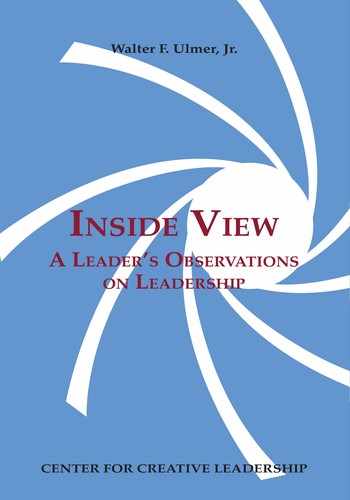People have been arguing about the fundamental issues of “life” for quite some time and they will most likely continue to do so for the foreseeable future. Similarly, and on only a slightly lower level of human concern, people are debating the fundamental issues of “leadership.” Some of these debates seem useful to me. Others do not. Here is my assessment:
Is leadership different from management? Trying to make a distinction between leadership and management is ultimately a useless exercise. True, leadership primarily involves vision, motivation, and commitment; and management primarily involves resources, structures, and prioritization. But these concepts are so entwined operationally—so interdependent in reality—that the argument has little utility.
Are leaders born or made? This question has some merit. A thoughtful analysis of what leaders do and what competencies and behaviors they must possess is essential for a productive discussion about leadership. Once those are determined for a particular situation—keeping in mind that optimal competencies and behaviors can be universal (i.e., trustworthy) or situational (i.e., personable)—there can be a useful dialogue. Which of the competencies are inborn? Which of the behaviors are learned? And, most importantly, which competencies and behaviors are amenable to change or enhancement, and by what combination of mechanisms?
Can work and other life be balanced? I put this in the nonproductive category. Concepts about a “balanced” life are highly theoretical. It could be argued that most of the substantial contributions to civilization have been made by “unbalanced” people. More importantly, “balanced” is in the eye of the beholder. (But I guess some awareness of the issue can’t hurt!)
Should you work to improve yourself or to improve the world? This is a keeper. If a leader, such as Napoleon prior to Waterloo, has not accepted the need to listen, learn, and grow, his or her potential will not be reached—and any world-changing power will be impeded. Improving one’s self-awareness is for most of us a tough pill to swallow (the pill size varies directly with the degree of previously attained “success”).
Is success internally or externally defined? This question is a winner. It is missing in most studies concerning executive success. Yet it is a profoundly practical question. Arriving at a clear definition of success can clarify, revitalize, frighten, or embolden. (And on a larger scale it can do the same for organizations of every shape and size.) The fact that success is derived from both internal constructs and external realities only enhances the value of the question.
Should the primary culture of an organization be autocratic or democratic? The persistent tension between individual and group decision-making—in every kind of organization from the Catholic Church to General Motors—attests to the relevance of this question. Those of us who believe that leaders in organizations must have authority commensurate with their responsibility can be accused of insensitivity to the tendency to abuse power. Yet, because of the stakes involved, the debate must take place and no issue is more important for contemporary organizations. Everybody knows that “empowered” organizations in our culture are more productive over the long run than highly “controlled” ones. But almost everybody also knows that even people with good intentions do not automatically blend into high-performing teams when there are no clear guidelines to focus and harmonize efforts.
Is selection more important than development? This question exemplifies how a theoretical discussion can illuminate fundamental issues. When we confront the question of whether our processes for selecting the “right” people are key to a successful organization, or explore whether our programs to train and develop all available talent represent the crucial practice, the sensible conclusion that it is “both” makes this argument ultimately productive.
What is more important, context or personality? This potentially productive question is awfully complex. It is not for brief hallway conversations. Of course the situational context matters—although I am coming to think that “time” is the only important situational variable. Of course “personality” matters—in fact, more than most of us are willing to admit. Our “hard wiring” and early nurturing can exert relentless pressure on us to behave in certain ways regardless of the context in which we find ourselves.
Some closing words. This is my final “Inside View.” I have often said that I have been very fortunate to have spent over forty-two years working in two remarkable organizations: the U.S. Army and the Center for Creative Leadership. I found a surprising similarity of values regarding service to society in these organizations: good people working for something larger than themselves. What a joy and privilege to have been a part of their history!
[Originally published in Issues & Observations, Vol. 14, No. 3, 1994]
